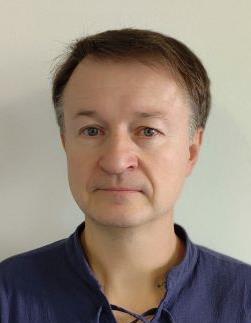The team has been newly established and has been working since the spring of 2022. The project “Podoby legitimizace násilí” will be carried out by members of the Department of Philosophy and Religious Studies of the University of Pardubice.
The scientific team focuses on
- documentation of the functioning of mechanisms that justify violence,
- analysis of the various forms of violence with regard to distinguishing between discursive and structural violence
- mapping the functioning of violence in different social, religious and historical contexts, including the context of modernity,
- demonstrating the existence of connecting elements in the legitimation of violence across historical periods and different religious and non-religious traditions,
- pointing to the destabilising or homogenising effects of violence on society.
Keywords
legitimation of violence; mechanisms of violence; discursive and structural violence; religious and non-religious forms of legitimation of violence; violence in modernity
Members of the scientific team
- doc. Filip Grygar, Ph.D.
- ThDr. Jan Rokyta Ph.D.
- Mgr. František Novotný, Ph.D.
- Mgr. Ondřej Krása, Ph.D.
- Mgr. Matěj Cíbik, Ph.D.
- Mgr. Tadeáš Vala
- Mgr. Radek Haňka
Solved projects
| Project implementation period | Project name |
| 2022–2024 | Podoby legitimizace násilí |
Description of activity
The project aims to analyse and document the functioning of mechanisms that justify violence. These mechanisms take many forms in different social, religious, and historical contexts. The focus of the project will be to demonstrate the existence of intersections in the legitimation of violence across historical periods, traditions, and religious and non-religious or secular contexts. The merit of the project lies in its transcultural and transhistorical comparative potential and its analysis of the problem of legitimising violence with implications for the present.
Philosophy and religious studies do not serve here as theoretical or historical sciences. Instead, they deal with specific selected phenomena. Different ways in which violence is legitimised in language, prejudices, stereotypes, scientific activity and religious discourse are presented in the context of modernity, modernity in relation to political religions, traditional societies and non-European thinking in the present. Contemporary radical Islam is included as a topical issue, which also fits in well with the comparative intention of the project. The psychological aspect of violence addressed in the project does not refer to the pathology of individuals or violent persons but rather to social psychology, such as the concept of paranoia. While the individual results of the project will document the different forms of legitimation of violence, the project will generally maintain the distinction between discursive and structural violence in the given thematic areas. Structural violence is linked to the exercise of power and is associated with a hierarchical structure. In relation to society, structural violence is destabilising or homogenising. Subsequently, the concept of discursive violence problematises the distinction between words and actions and focuses primarily on verbally produced violence, which may, under certain circumstances, influence behaviour.
The project shall examine the position of modernity a) in relation to science or the activities of scientists, for example, in Nazi Germany, the uncoerced participation of scientists in the construction of nuclear weapons; b) in relation to political religions. Furthermore, the following will be analysed: the clash of modernity in the service of political religion with the view of traditional society; pre-modern Christian mythologies and structural violence, e.g. mythology as a source of motivation for violence; and the level of religiously motivated violence among contemporary radical Muslims.


